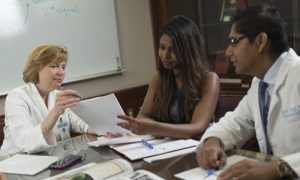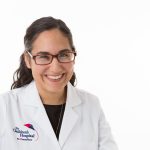Analysis of the 2015 ACR Workforce Study, published in the April 2018 issue of Arthritis Care & Research, revealed the U.S. will face a shortage of 4,000 rheumatology providers by 2030.1
This shortage will be uneven, with rheumatology providers concentrated in urban and suburban areas, and rural areas underserved. The Central U.S., Southwest, Southeast and Northwest will, more broadly, face low provider density.
4 Facets
In the face of these challenges, the ACR has continued to advocate at the state and federal levels to help address the projected workforce shortfall.2 The workforce issue has four facets, says Angus Worthing, MD, FACR, FACP, chair of the ACR’s Government Affairs Committee and partner at Arthritis & Rheumatism Associates in Washington, D.C.:
- A lack of rheumatologists;
- Maldistribution of rheumatologists;
- More demand for adult rheumatology fellowship slots than are currently budgeted for and allotted in the U.S.; and
- Less demand for pediatric fellowship slots than are allotted.
The ACR is approaching these shortfalls in a number of ways, including a push to fund loan forgiveness programs for rheumatologists willing to practice in areas of need and endeavors to fund more training slots.
The Trouble with Training Slots
Earlier efforts, says Beth L. Jonas, MD, FACR, chair of the ACR’s Committee on Rheumatology Training & Workforce Issues (COTW), were successful in recruiting more trainees to adult rheumatology. For years, she says, the ACR and the Rheumatology Research Foundation actively worked to “increase the interest in a career in rheumatology among medical students and residents.” Those efforts were extremely fruitful.
“The interest in becoming a rheumatologist has been really high the last two to three years,” Dr. Jonas says. “But we don’t have enough fellowship training slots.”
Roughly 100 more physicians applied for slots than there were fellowships available in last year’s match.
“Most rheumatology training programs don’t have adequate funding to train rheumatology fellows, and that’s where the Foundation has helped bridge the gap,” says Dr. Jonas, chief of Rheumatology, Allergy and Immunology at the University of North Carolina School of Medicine, Chapel Hill. “It [partially] funds between 20 and 25 fellowship slots a year. The Arthritis Foundation has a new grant mechanism for programs that are able to increase their training slots, too.”
Dr. Worthing never wastes an opportunity to encourage ACR members and colleagues to donate to the Foundation to support such efforts. He is also heartened by some of the innovative ways program directors across the country are expanding their rheumatology training programs.


